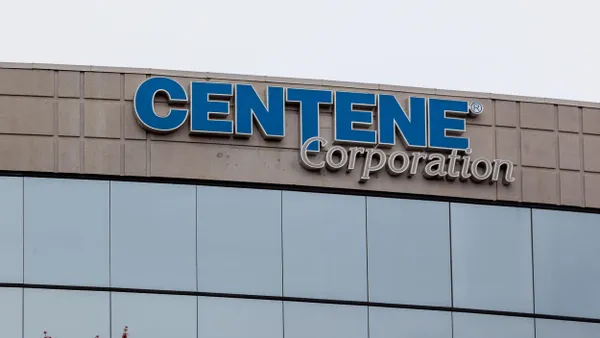Dive Brief:
- House Democrats introduced a bill on Friday to repeal a CMS innovation center payment model that will add artificial intelligence-backed prior authorization for some services in Medicare.
- The Wasteful and Inappropriate Service Reduction, or WISeR, model will implement prior authorization in six states starting in January. The CMS last week announced health technology companies that will administer the model.
- The six Democrat representatives behind the legislation say WISeR will add red tape and limit access to care for Medicare seniors. “It is not an exaggeration to say that the requirement of prior authorization for traditional Medicare services will kill seniors,” said Rep. Mark Pocan, D-Wis. “Not only that, but the use of AI in determining whether or not treatment is necessary is extremely reckless.”
Dive Insight:
The bill, called the Seniors Deserve SMARTER (Streamlined Medical Approvals for Timely, Efficient Recovery) Care Act, was introduced by Reps. Rick Larsen D-Wash., Suzan DelBene, D-Wash., Kim Schrier, D-Wash., Greg Landsman D-Ohio, Ami Bera, D-Calif., and Pocan last week.
It comes months after the WISeR model was announced by the Center for Medicare and Medicaid Innovation, an agency created by the Affordable Care Act that tests payment and care delivery models in government healthcare programs.
Typically, traditional Medicare only uses prior authorization, where doctors have to receive approval from insurers before offering certain services or medications, in limited circumstances.
But under WISeR, the innovation center will contract with private companies to adopt AI-backed prior authorization for some services, like skin and tissue substitutes and electrical nerve stimulator implants.
The CMS argues the model will root out unnecessary care and cut costs for patients and the federal government.
The companies working with the CMMI — Cohere Health in Texas, Genzeon in New Jersey, Humata Health in Oklahoma, Innovaccer in Ohio, Virtix Health in Washington and Zyter in Arizona — will receive a percentage of savings associated as a result of their work, the CMS said.
Democrats have already raised concerns about the WiSER pilot, noting in a letter to the CMS this summer that the model could worsen health outcomes for Medicare seniors and overburden the healthcare workforce.
Now, lawmakers are hoping to repeal the model entirely.
“As a doctor and former Chief Medical Officer of Sacramento County, I’ve seen how harmful prior authorization can be when it delays or denies necessary care for patients,” Bera said in a statement Friday. “The WISeR model takes that a step further by financially rewarding companies for denying care through so-called ‘averted expenditures.’ That creates a dangerous incentive to put profits ahead of patients’ health. These decisions should be made by doctors, not by algorithms designed to cut costs.”
The CMS said this summer that final decisions on coverage denials will be made by a licensed clinician. Inpatient-only services, emergency services and services “that would pose a substantial risk to patients if delayed” are also excluded from the model, according to the CMS.
Still, prior authorization is controversial. Providers say the utilization management strategy requires extra administrative work and delays medically necessary care for patients, while payers say the process is key to avoiding low-value spending.
The Trump administration has even taken steps to limit prior authorization, spearheading a pledge among large insurers this summer to reform the process and reduce the number of claims that require prior authorization.
AI’s role in medical claims review is also worrying some lawmakers. A report by the Senate Permanent Subcommittee on Investigations published last year argued major Medicare Advantage insurers were using predictive technology to increase denials for post-acute care.
Last month, Sen. Richard Blumenthal, D-Conn., sent a letter to large MA payers CVS Health, UnitedHealthcare and Humana on their use of AI to make coverage decisions.













